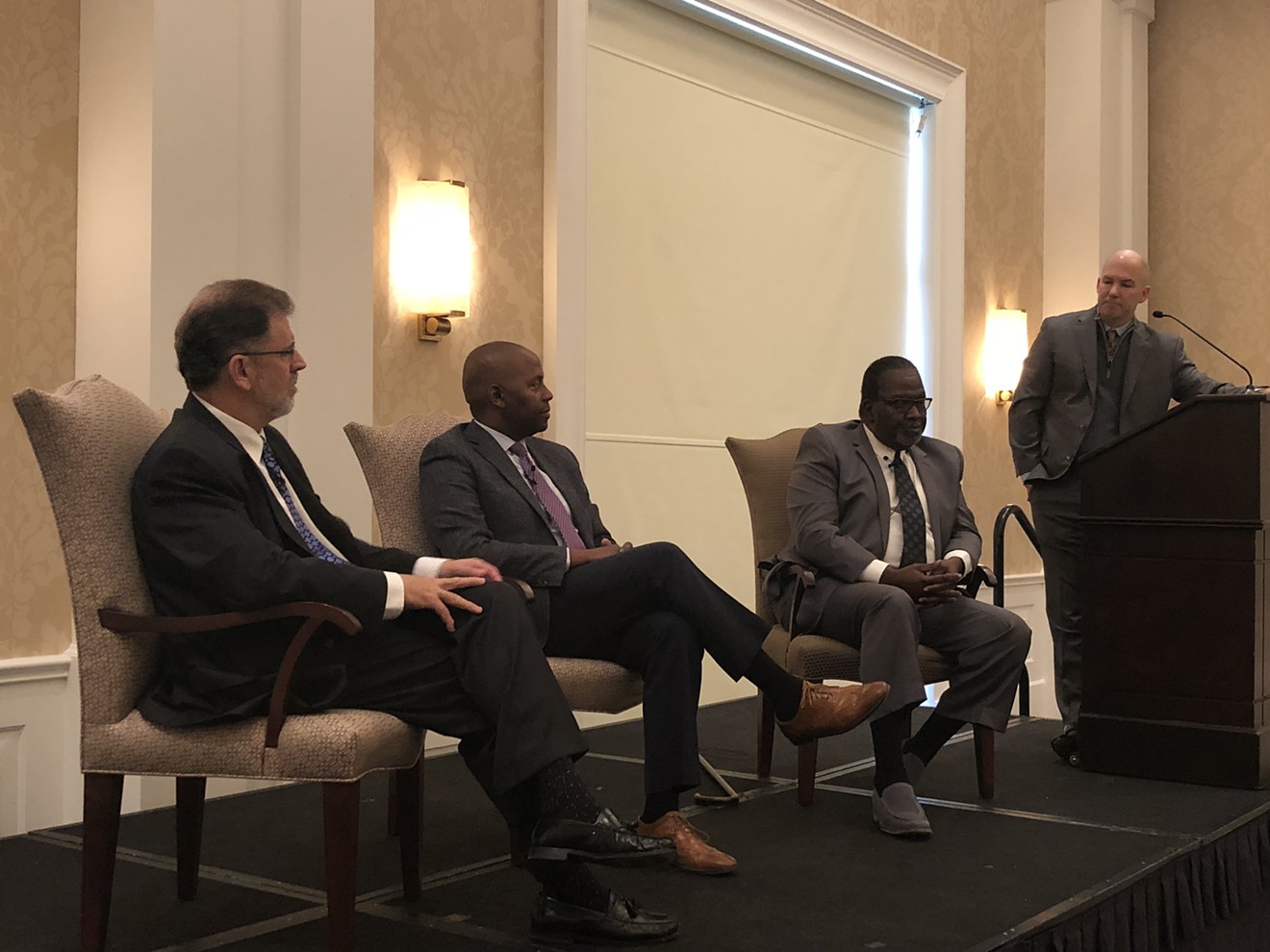“What most frustrates you about current race relations in America?”
“Do you think your race changes the intensity of your reaction to Botham Jean’s shooting than for a person of a different race? If so, how?”
These questions aren’t the type anyone wants to discuss with a random person they met 10 minutes ago during lunch, but at a Project Unity event called “Together We Lunch” on Wednesday, the idea was to do just that.
Project Unity began after a 2016 initiative called Year of Unity. Together We Lunch was borne out of the project’s mission to build communities and communication. The topic of discussion: the death of Botham Jean and the tension in Dallas that followed.
On Sept. 6, Dallas police Officer Amber Guyger finished her shift at work, walked into the apartment directly above hers at the South Side Flats complex and shot Jean. Following Jean’s death, protests erupted in Dallas along with calls for an indictment.
“We wanted to use the Jean shooting as a springboard to have a dialogue about race,” says Richie Butler, pastor of St. Paul United Methodist Church in Dallas and founder of Project Unity. “We believe what unites us is far greater than what divides us. … this is about listening to each other.”
“Racism is a cancer, and if you ignore cancer, it will kill you." – Pastor Richie Butler
tweet this
The lunch at Belo Mansion began with a panel discussion between the Rev. Gerald Britt, vice president of external affairs at City Square; Dr. Brian Williams, chair of the Dallas Citizens Police Review Board; and John Stephens, chair of the Greater Dallas Chamber of Commerce and CFO of AT&T.
“One of the components of the stages of grief is anger and … we’re never able to fully express it because we’re constantly told that it’s got to be something else, it's not racism,” Britt says. “The idea of telling black people that you just need to get over it, or that it is in the past, or why are you bringing that up, or why is that an issue you have or we don’t have time. ... Now is the time to talk about it.”
The room he spoke to was filled with members of the Chamber of Commerce, business leaders, lawyers, community leaders and clergy — even elusive District Attorney Faith Johnson made an appearance.
“It’s uncomfortable,” Butler says about the type of conversation he is trying to start. “I know for my white brothers and sisters talking about it is hard, but if we’re going to ever overcome it, we have to deal with it.
“Racism is a cancer, and if you ignore cancer, it will kill you. We can’t get better as a society if we don’t cure it.”
One of the discussion questions in a stack of cards handed out to attendees asked a simple question: “What gives you hope about the future of race relations in America?”
Kevin Bowens, a photographer who attended Together We Lunch, says his answer is events like the one held at Belo Mansion.
“Events like this one is where others open their doors to those that are of a different race or background, that live differently, that act differently, that dress differently,” he says. “I believe that coming together is certainly going to make a difference.”












